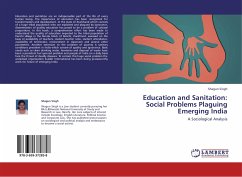Marginalisation results exclusion from meaningful participation in society. Marginalisation is seldom experienced in one sphere. It is noteworthy to mention that even after the dawn of the 21st century and despite of all means of development we have the concept of marginalisation and still strategising for empowerment of the marginalised. To achieve the objective of empowerment of marginalised communities it is imperative to understand the nature and causes of marginalisation and as consequence exclusion. The aim of this book to address on such marginalised groups with both the intention to introduce the plight of the marginalised communities and thereby to address the scope for their empowerment. The book would be one such modest attempt in achieving the desired end that is empowerment of marginalised and excluded. Hence, it throws more light on women education and empowerment, HIV/AIDS affected, plantation labourers, and child labourers, with a focus to influence inclusive policies.
Bitte wählen Sie Ihr Anliegen aus.
Rechnungen
Retourenschein anfordern
Bestellstatus
Storno








